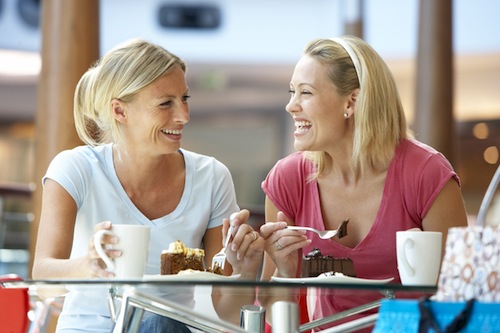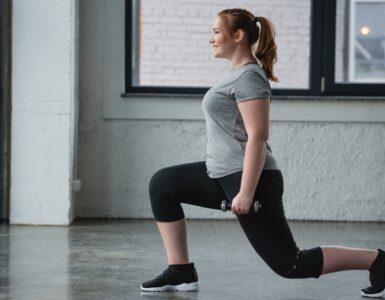Your friends could be sabotaging your diet. Spot the diet dangers in your
social circles and stick to your healthy eating goals.
No matter what your nutrition habits are, your social world impacts your
food choices and your eating habits. It has been this way for thousands of
years and it continues to be this way today. But our social landscape has
changed – from eating on the go to eating at work, to eating via social
media. Having an awareness of how your surroundings can impact your
behaviors as well as being aware of how your own behaviors can influence
others can help you navigate these waters.
In 2007, researchers from the University of California San Diego, and
Harvard Medical School teamed up to look at how our habits are linked to
our social network. What they demonstrated, is that friends’ behaviors,
even more than family members, correlate with our own behaviors, norms,
and body size. Weight is a multidimensional, complex issue, but our social
environment and psychology are major players. Behavioral research shows
that our eating habits change based on how many people we are eating
with. On average, eating with one other person leads us to eat about 35%
more than we would eat if we were alone. In a group of 7 or more, this
jumps to almost double – 96%. So what is going on?
Our social environment not only influences what we choose to eat, it also
plays a role in setting the pace for the meal. Ever eaten with a fast eater?
Do you tend to speed up your normal pace? When we are with others, we
tend to mimic their behaviors. Our friends also help establish norms
regarding portion size and food choices. If your friend eats 7 cookies, it
seems normal & appropriate to eat 7 cookies, so you might follow suit. A
lot of these things are happening subconsciously, so being aware of how
our social eating environment impacts our choices can help us devise a
plan before we even start.
· Take time to check in with your own hunger/satiety during the meal
· Be aware if you are picking at your food long after the point of feeling
satisfied
· Ask yourself what you really want to eat instead of just succumbing to
“I’ll have what she’s having…”
But sometimes, other, more explicit, elements of our social environment
impact our food choices. In our current nutrition landscape, everyone
seems to have an opinion about what everyone else is eating (or not
eating):
The Guilt & Pressure Scenario:
Guilt: “You have to try one of my brownies, my daughter and I spent
all day
making them.” OR
Pressure: “Everyone else is having some.”
Of course you want to navigate this lightly. You don’t want to offend, but
you also want to honor your own feelings, adhere to possible nutrition
goals, and check in with your own hunger/satiety. Remember too that your
behaviors and food choices don’t have to be the focal point of the event.
Often we get together for conversation, support, celebration, camaraderie
etc…focus on the interaction instead of the food. To avoid insulting the
host, a bite or two can do the trick. Now flip the scenario around, are you
one to place guilt, or pressure, to feel offended if someone doesn’t eat
your home-cooked brownie?
Scenario #2: Out at lunch…what is SHE ordering?
Sometimes we worry too much about what other people are doing instead
of honoring our own needs, BUT given that we do this, how might we use it
to our advantage? Health-conscious friends can help shape your own
behaviors just as someone’s unhealthy habits can influence choice. If you
are trying to make certain nutrition changes in your own life, talk to your
friends about how they might be able to help you. At a potluck or party,
extend this a bit further and discuss offering a variety of different foods to
meet the tastes of all those who attend.
Your Community
A friend recently told me that her neighborhood was organizing a get
healthy plan. Those interested in participating contributed $10 to a central
fund and were encouraged to make specific personal goals for weight loss.
After 8 weeks, the winner would receive a portion of the purse. When
friends participate in a group weight-loss program together, they tend to
be more successful. Your neighborhood represents a great opportunity for
coordinating exercise, and supporting personal goals. Friends also help
hold you accountable.
Take a look at your own social/food environment. What elements are
positive? How can you make small adjustments to create more positivity
and set yourself up for success? How might you be able to help others in
your social network? While others may influence our personal behaviors, we
are also key influencers – how can you be a positive, supportive influence
for your friends, family, and kids?
Kristi Spence is a registered dietician and Director of Health & Wellness at
the Utah Dairy Council
For more information visit:
www.utahdairycouncil.com
On Twitter: @DairyUTNV
Facebook: www.facebook.com/DairyUT
NV















Add comment